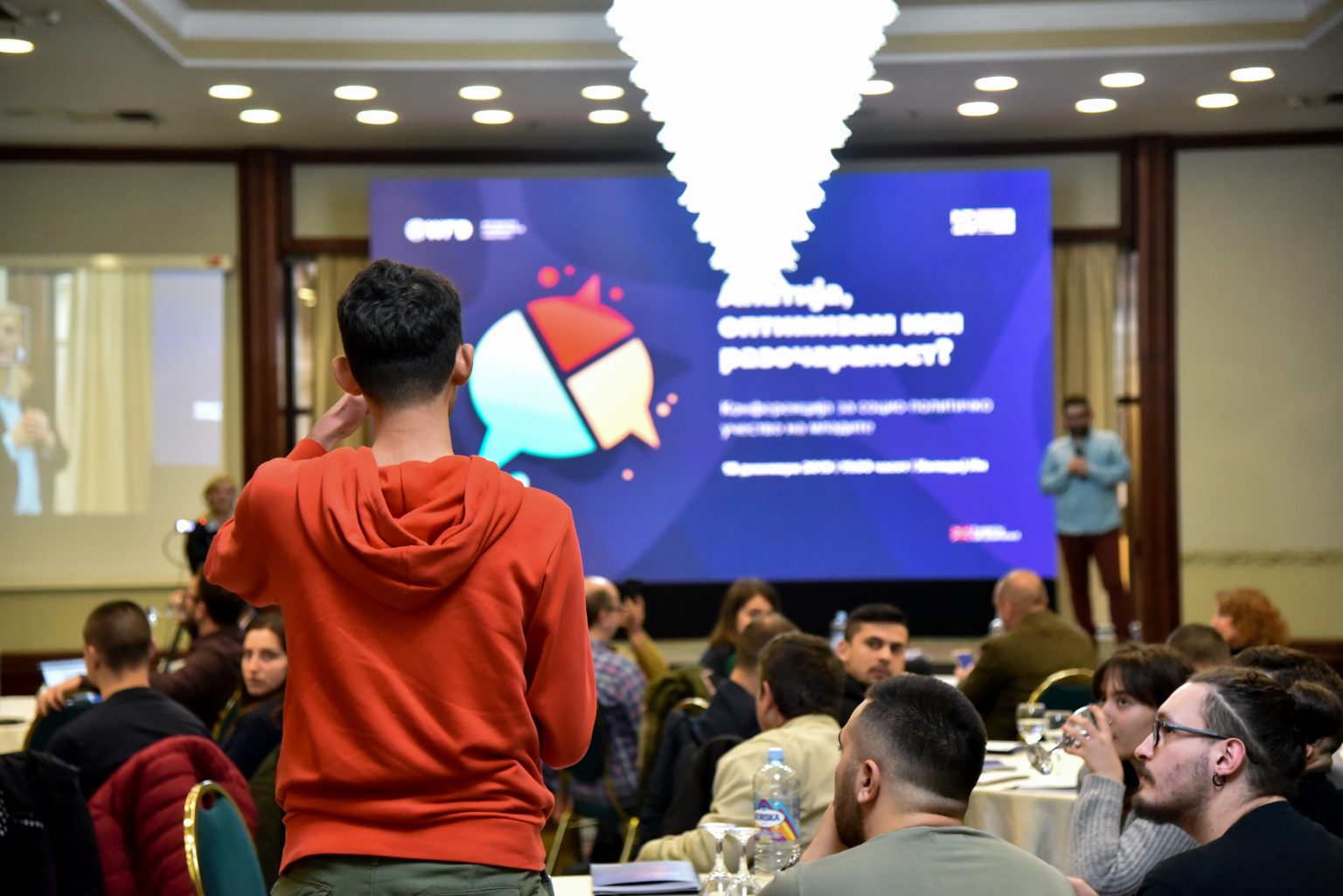The COVID-19 crisis affected young people in the country, with 15% of them sharing their salaries decreased during the crisis and 6% saying they lost their jobs. The students among the respondents grade education during the pandemic with a medium grade – 3.
Financial status plays a big role in young people’s optimism and content. Young people who state they have a lower-than-average financial status are almost twice less satisfied with their place in society compared to those with an above-average financial status.
Forty-four percent of respondents believe North Macedonia will sometime become an EU member state. This is a decrease in optimism compared to 2019 of 15% and increase in uncertainty by 12%. The young people that believe the country will become an EU member state, believe this will happen, in average, by 2026.
Over two thirds (68%) of young people think that the authorities are not familiar with their problems, while 29% believe they are. Young people have little confidence they can influence authorities, with almost 59% believing that they cannot influence them at all.
The number of young people that say they voted on the last parliamentary elections in 2020 is significant – 74,7% of respondents say they voted. For those the voted, the most dominant reason to cast their vote was that they believe it is a civic right and duty to vote (46%) while for those that did not vote – that no one earned their vote (33%).
Seven out of 10 young people have never been consulted by local or national authorities. The number is even higher for young persons with disabilities, where 9 out of 10 have never been included or consulted by institutions in decision-making. Young people with disabilities are even more skeptical that they can influence institutions (83%), by 25% more than the general population.
The research was conducted though a telephone poll in December 2020, on a national representative sample (1053 respondents and additional 80 respondents in two “booster” samples representing groups that are not sufficiently present in the national representative sample). The study was prepared by WFD in partnership with Youth Educational Forum and the telephone poll was conducted by TIM Institute. The authors of the study are Jovana Gjorgjiovska and Martin Galevski. The research was supported by the British Government though the Western Balkans Democracy Initiative.
This is the second study on socio-political participation prepared by WFD, while the first study titled “Optimism, Apathy or Disappointment” was published in 2019.
The purpose of this study is to provide current and relevant information about the perceptions and outlooks of young people, that will be useful to institutions in addressing the needs and improving the wellbeing and inclusion of young people in society. We hope that this study and its recommendations will serve to support youth participation, involvement and engagement by institutions and other stakeholders. WFD will continue its work on political participation of young people though work with young MPs, political party youth branches and young people.
This report is available in Albanian
